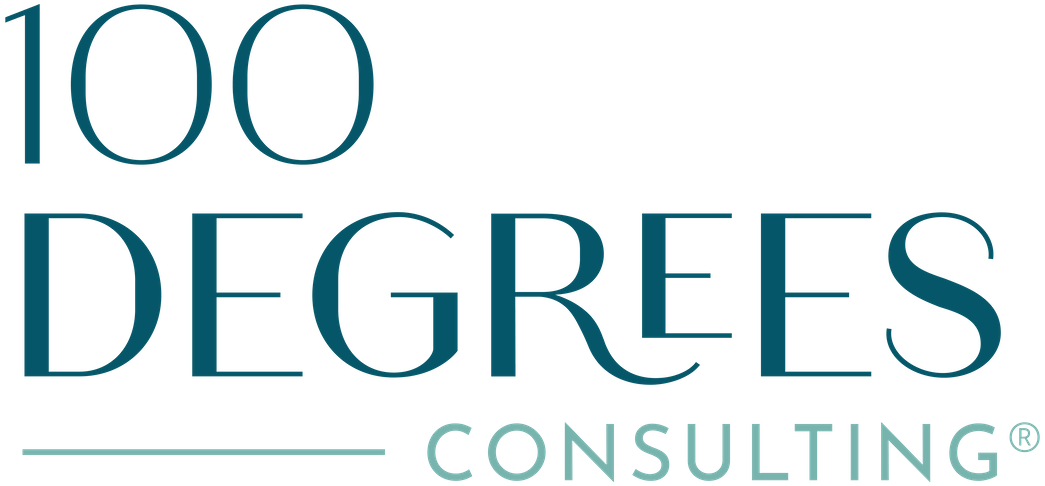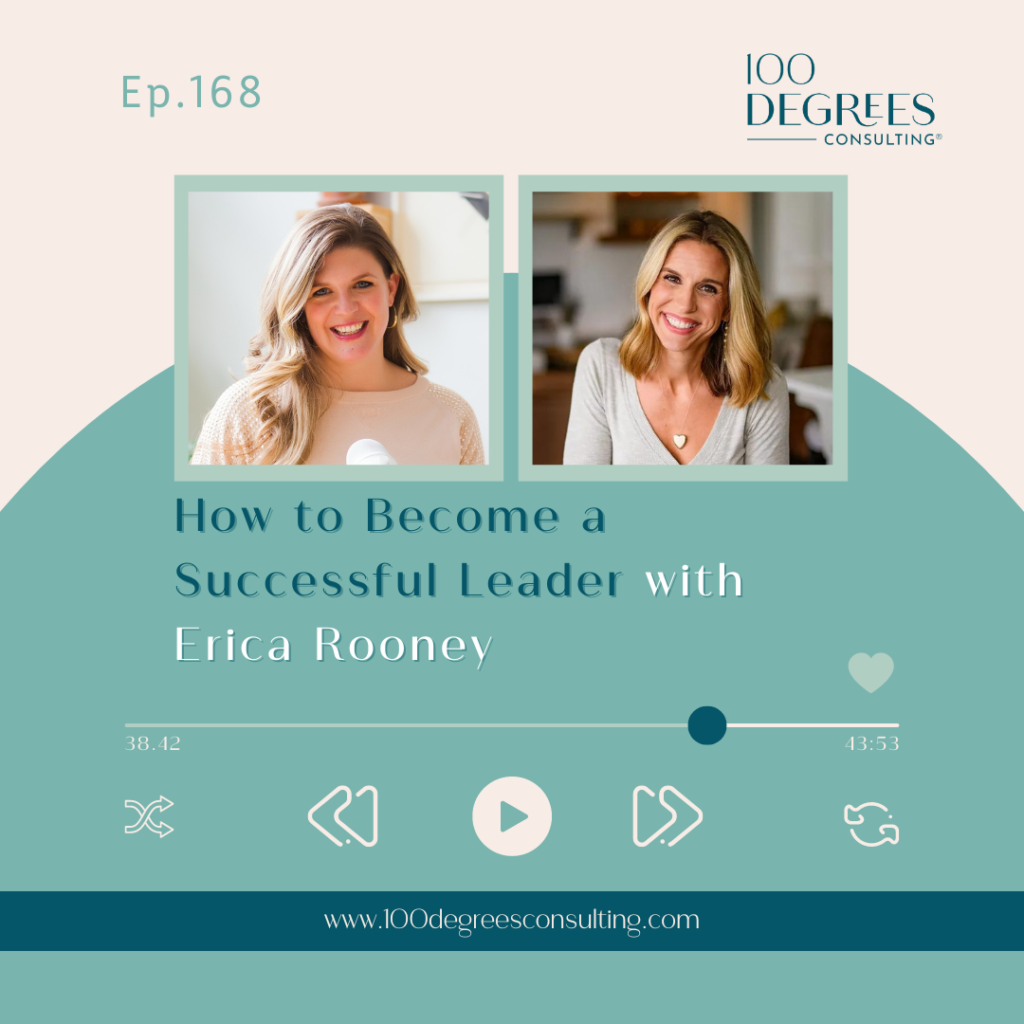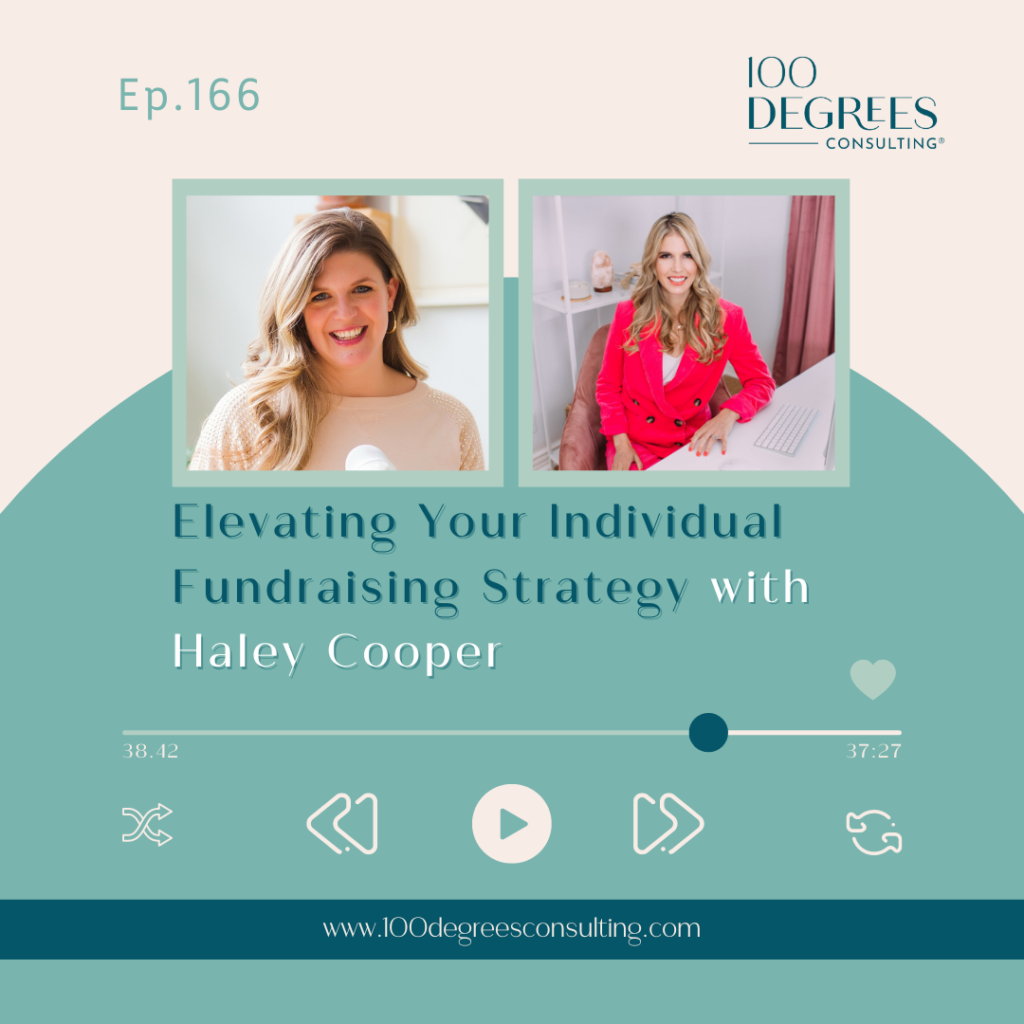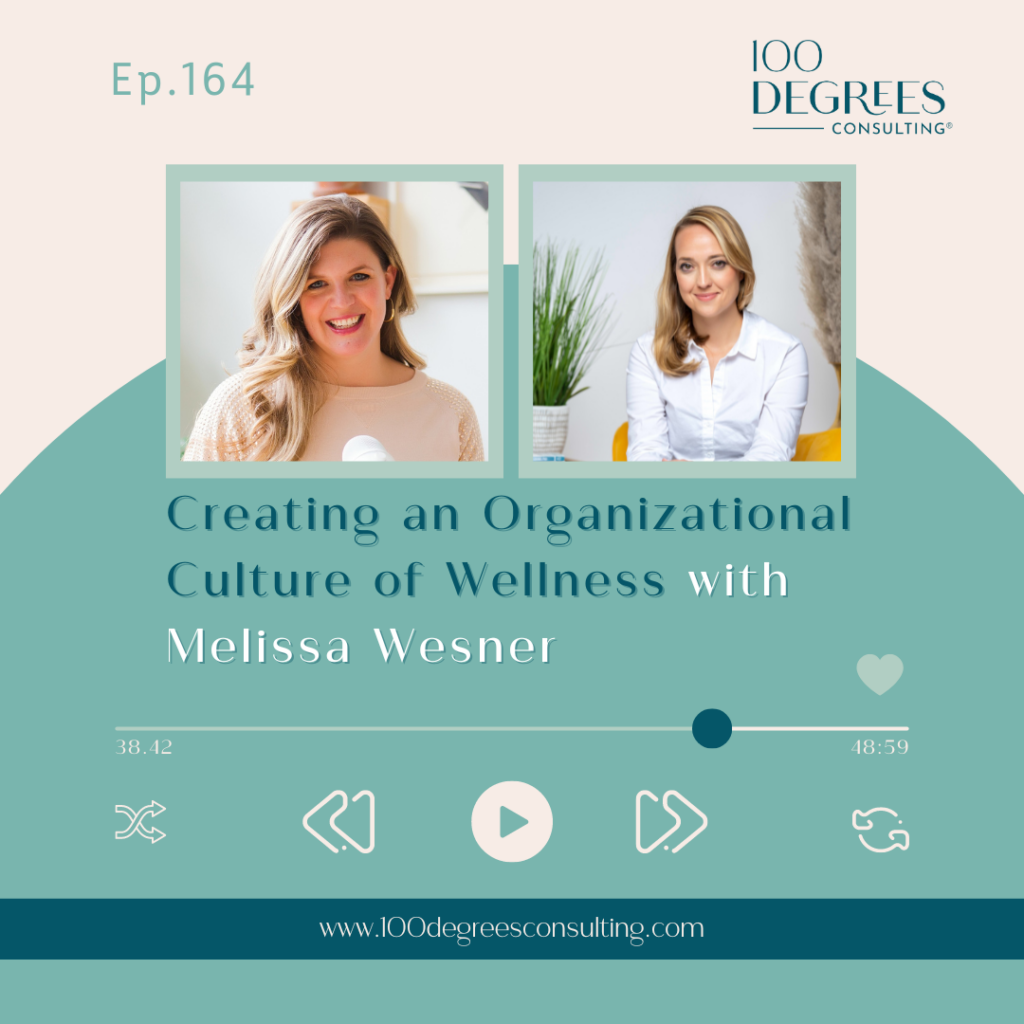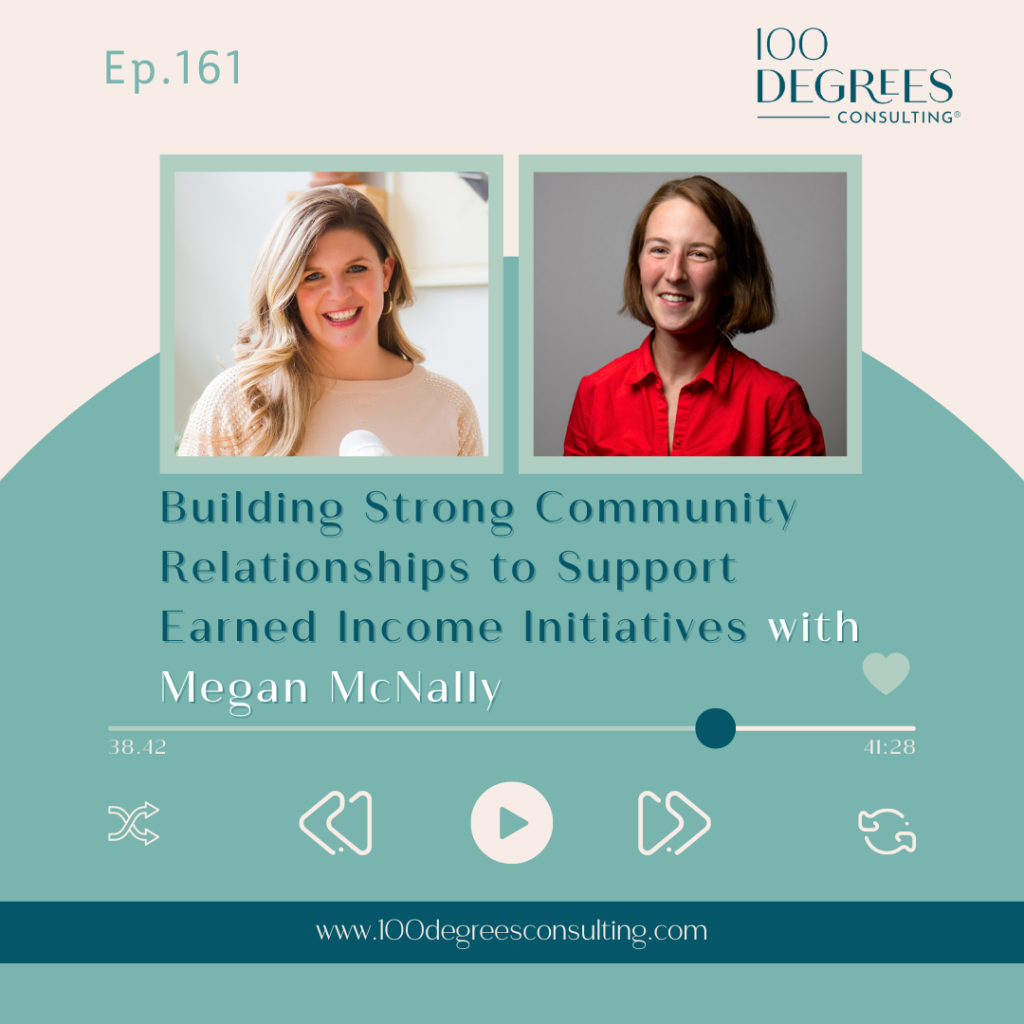Transcript Episode 9: 4 Strategies to Build a Sustainable Business
Transcript Episode 9
Stephanie Skryzowski: Welcome to the 100 Degrees of Entrepreneurship podcast, the show for purpose-driven entrepreneurs who want to get inspired to step outside of your comfort zone, expand it to your purpose, and grow your business in a big way. I’m your host, Stephanie Skryzowski, a globe trotting CFO whose mission is to empower leaders to better understand their numbers to grow their impact and their income. Let’s dive in.
Hello, hello, welcome back to the 100 Degrees of Entrepreneurship podcast, I’m your host, Stephanie Skryzowski. I’m really excited to share this episode with you today, and I’m going to be honest, this is kind of coming off the cuff. I just recorded a few episodes with some guests that you’re going to be hearing really soon, and it just blew my mind how these were completely different people in completely different industries, literally the industries could not be more different, but all of the same lessons, all of the same pieces of advice were exactly the same. And that was really powerful to me because in a world where we are hearing so much noise on Instagram, on Facebook, on LinkedIn, on all the different places, on Clubhouse, oh my goodness, and people are just giving advice left and right, I found that it was really interesting that I was hearing the same exact things from people who were very, very different.
So I wanted to share these lessons with you today as what I really feel like are the four most important lessons, building blocks, in growing your business, and building a business that is going to be around for the long haul. So like I said, this is a little bit off the cuff, and from the heart, but it’s four principles that I have used in my own business to grow and to help keep me focused, and things that I am seeing and hearing again and again from other entrepreneurs. Let’s just dive into it.
So the first one is that business is a long game. There are no quick wins. Let me repeat that, there are no quick wins. And if you see somebody who looks like they are having a quick win, what you don’t see is all of the behind the scenes, all of the years that they spent, maybe just exploring within themselves what they really like doing, or what they’re good at, and you don’t see that. When we’re just seeing somebody come from nowhere to all of a sudden being a seven figure business owner, we don’t see all of the messy underneath and in-between. And so I was talking to a couple of different guests about branding and messaging, and it is a long game. Being consistent and clear with your message, and saying the same thing, what feels like the same thing, again and again and again, it feels so boring, and it’s like, is this even getting results? But at the end of the day, you are playing a long game.
So the other person that I was talking to, we were talking about SEO and blog posts, and this person has sold a blog, built it to millions of page views, and sold a blog. I’m not even sure I knew that you could do that, and so she knows a thing or two about blogging, and about SEO, and she said too, it’s a long game. We are not in this for the quick wins, and if you are, you’re probably in the wrong business, or your business might hit a quick, quick, quick, quick, high, but then it’s going to hit another quick low. So I don’t know about you, but I don’t really like the roller coaster. I mean, in real life I actually really do love roller coasters, but for business, I think I would rather see a long game, and that diagonal line slowly going up, up, up, up, up, up, up over time, rather than huge peaks and huge valleys.
So just remember, if you’re thinking to yourself, gosh, I am seeing this business owner that I follow on Instagram, and she went from zero to nothing in five seconds, why can’t I do that? Why can’t I land on something like that? Well, that’s not really what happened. In 99.9, maybe even 100% of the cases, that is not what happened. So just remember, the consistent efforts that you are putting into your business, whatever they look like right now, are going to get you to where you want to go, it is a long game.
I don’t know about you, but I’m not always a very patient person, and so I do really like a quick win and instant gratification, but you know what, that’s not always the case. And I think back on my own business, now that we’re five years in, we have a lot of clients in our portfolio right now. I didn’t start with a lot of clients, I started with four. I mean, at the end of the day, I really started with one, and then I started with four, and now we have as many as we do now and we’re making the impact that we are now, but it was not overnight. So it’s a long game, my friends, that’s number one.
The second thing that I talked to, literally every single person I’ve talked to in the last day or two for these podcasts interviews, talks about pivots, and everyone has made a pivot in their business. They started their business doing one thing, and then realize that, you know what, either my life has changed, or the needs of the people that I’m serving have changed, or maybe I just don’t really want to do this anymore, I had like a sort of a life epiphany, I don’t want to do this anymore, and I’m going to change into something new.
And so the common thread that I saw with all of these people that I talked to is number one, they all pivoted in one way or another, number two, it was really scary for all of them. It was scary to change from what you’re doing, and that you’re comfortable with, and that you’re probably good at, into something else, especially if there were some unknowns. Maybe the revenue was unknown, you had no idea if this thing that you were pivoting to was going to make you money, or there was some fear around it, or you didn’t know if you’d be good at it, or if people would like you, all of these pivots involved some fear. But you know what they also involved? A plan I think I said it in one of the interviews, pivot with a plan. That might be a new tagline or something, pivot with a plan.
So none of these people that I talked to, who all pivoted, none of them just threw the old business out and jumped head first into something brand new without having a plan, they all had a plan. And so maybe that meant a financial plan, maybe that meant more of a business plan where we know who our customers are and where they’re going to come from, but regardless they had a plan. So even if they didn’t truly know what was around the corner, they had a decent idea of that. So I think that’s super important, and number two, sort of big lesson, like I’m saying, is pivots are scary, but they are totally doable, and are probably the best thing for you, as long as you pivot with them plan.
You hear me talk all the time about how important it is to know your numbers as a business owner, but you may be thinking, well, how in the world do I do that? Where do I even begin? So I have a free resource for you. The Profit Playbook is an amazing template that you spend about 15 minutes getting it all set up, and you can literally see into the future of your business. Revenue, expenses, cashflow, just like a crystal ball. It is a huge resource that will absolutely help you create a roadmap to reach your goals in your business. It is for free over at 100degreesconsulting.com/profit.
So number three, the third thing that I heard consistently, again, from all of these people working in different industries, working in different spaces, was to do what works for you. Keep your eyes on your own paper, stop trying to fit yourself into the box of what others appear to be doing, stop downloading the freebie checklist of the 10 things you do to be a successful fill in the blank, and do you. Now, that comes with a caveat. I think intrinsically we all know that, but then technically, or logistically, well, what do we actually do? How do we actually accomplish this?
And so that’s where we go to so-and-so’s website and we download their free checklist, and we do things and set up our business in exactly the way that they told us, because they’ve been there before, they’ve done that. Which I understand, we don’t need to reinvent the wheel if we’re trying to do something in our business. But what happens is that then we try and shape and mold our business to fit in the exact same mold that somebody else is fitting in. And this metaphor is kind of gross, but if you put on someone else’s shoes, they don’t fit the same, those shoe had become molded somebody else’s foot. And so even if you wear the same size, even if you’re a size eight and they’re a size eight, that shoe is not going to fit you in exactly the same way because it has been shaped and molded to their foot. And so even if you have a business that’s very similar to somebody else’s, you’re doing the same thing, you’re working in the same space, your business needs to be your business, and you need to do things your way.
Now, I think one of the most important pieces of that is actually knowing what does work for you, and that’s where data and metrics and analysis, and even just sitting and thinking about your business and thinking about what’s working, that’s where all of that comes into play, because the key piece of this is we need to know what actually is working for me. So I think about that in my own business, and I think about the fact that I have spent money on Facebook ads before. I see everybody else spending money on Facebook ads and making bank. No joke, making bank. And so I think, okay, well if I follow their process, if I follow their checklist and listen to their course and do what they say to do, I’m going to make bank too. Guess what? I tried, and it didn’t work, because I was building my business into someone else’s mold, and even though I followed their tactics to a T, that shoe still didn’t fit.
So what I had to do was get this stupid concept of Facebook ads out of my brain for now, maybe I’ll revisit it later, but that’s really not what’s working for me right now. But I had to go back then and think about, okay, what is working for me? Well, partnering with large companies and doing education for their audiences, that is working for me big time. I have done partnerships with some very large software companies that have a financial management education content arm of their business, and so I have presented to their audience, their email lists, I’ve done webinars and educational sessions to help just educate, they’re providing free resources to their audience, and I help them with that. And as a result, I’ve added thousands of people to my email list, and have gotten clients and made connections, and so that is what’s working for me. Facebook ads are not it.
But if you asked another business owner, they might say, “Oh geez, I’ve tried to do the education thing, it does nothing for me, I hate webinars. Facebook ads run my business.” Well, that is great, and there’s no right or wrong, but what I want you to remember is to do what works for you, and you know what works for you by looking at the numbers, looking at the financials, we talk about how to structure your financials in a way that shows you what is working, what’s profitable, and what’s not. So do what works for you.
The fourth thing is to really pick a niche and own it. And this is really scary because you want to serve everyone, you want to talk to everyone, you want to make everyone happy, or maybe that’s just me, maybe that’s just that on the StrengthsFinder, harmony is one of my top strengths, so I just want everyone to be happy and working together, and whatnot. So maybe it’s just me that wants to make everybody happy. But when you try to talk to everyone, you’re talking to no one. When you are trying to be so broad that you are interesting and attractive to everybody, nobody’s really going to find that interesting or compelling. And so all of these points are coming up, every single woman I just talked to has a very specific niche, which is really interesting because, again, I feel like, oh, that’s a little scary to niche down.
But here’s the thing, when I think of any of their specialties, if I think, okay, speaking. Well, I know the speaking person, it’s not, I know the person who kind of coaches on speaking, but is also a business coach, and who also helps with marketing sometimes, and social media. No, not that person. I think of the person who is a speaking expert. When I think of data and analytics, one person comes to mind, you know why? Because she specializes in that, that is their thing. When I think of branding, and branding photography specifically, I think of one person. So that is the power of nit=ching down, and sometimes internally to ourselves it feels a little bit scary and limiting, and I think that’s where our scarcity mindset is really popping in and rearing its ugly head. But on the outside, that just sets you so far apart.
And I know for me, especially thinking about industries that I’m not super familiar with, or I’m not an expert in, like marketing and branding and that kind of thing, for example, if I know one person is a specialist in a certain thing, that’s going to stick out in my mind. So if I know that, okay, this person does social media marketing only, that’s going to stick out in my mind rather than somebody who’s doing marketing, branding, and website design. What are they actually known for? I don’t really know. So internally it might feel weird and scary and limiting, just kick that scarcity mindset to the curb. But remember, externally, that is how people remember you.
And so for us, we are CFOs and bookkeepers for purpose driven businesses and nonprofits, that’s it. If you’re not a purpose driven business or a nonprofit, then you’re not going to come to us. If you are looking for taxes, notice I did not say taxes anywhere in there, then you are probably not for us, and we are not for you. So if you want to really establish yourself as the go-to person for something, you have to really hone in on what that something is. That’s what you talk about, that’s what you do, that’s how you message yourself, that is your specialty, and that’s really what you do. So, like I said, another common thread that I saw in all of these business owners, and again, if somebody said, okay, who is an expert on speaking for business owners, I know exactly who to point them to, because that is her specialty, that is all she does, and she is the expert.
I really got so much out of these interviews that I recently recorded, and it was just, like I said, so interesting to see literally these four themes come up for each of these people in vastly different businesses and industries. So just to recap, the four things that I noticed, that I’m sharing with you today that are the four things that are really going to help you grow your business and keep it around for the long haul are, number one, anything you’re doing, growing a business is a long game. There are no overnight successes, there are no fast wins, it is all a buildup, it is a long game, so stick with it. Just because something isn’t working immediately, or in four days, or four months, doesn’t mean that it’s not working, and that it shouldn’t be part of your long game. So number one, it is a long game.
Number two, pivots can be scary if you don’t pivot with a plan. So pivots can be amazing for your business where you can really shift gears into something that you’re more passionate about, that you’re better at, that is going to serve your clients or your customers better, as long as you pivot with a plan. Number three, do what works for you. Keep your eyes on your own paper, stay in your lane, and focus on what works for you. And the key is to knowing what works for you, using the numbers and the analytics and the information from your own business to figure out what works for you, and then double down there. Not trying to fulfill somebody else’s checklist, or wear somebody else’s shoes.
And the fourth major strategy here to make sure your business is around for the long haul is to create a niche and stay in it. Like I said, I have people that I think of when I hear certain topics, and it’s not because they are a Jack or a Jill of all trades, it is because they have declared that as their specialty, as their business, and now I know, if I need a branding expert, I go to this person. So grab your niche, hold onto it, stick with it, stay consistent, and that is what is going to make you be that go-to person in your industry.
I hope this was super helpful. Like I said, it was just so enlightening to me to see these lessons being repeated over and over and over again. And I don’t know about you, but I’m going to do a little deep dive into my business now to see, okay, what am I doing that is in service of the long game? What am I doing that’s really working for me that I need to do of? How can I further define my niche? And then if I want to pivot, if I want to change something, let me create a plan to do that so I feel really good about that shift.
So I would love to hear which of these lessons resonates the most with you. Snap a screenshot of this episode on your phone and tag me over on Instagram at Stephanie.skry, and I will definitely be sure to share and be sure to respond, I would love to hear which of these things resonates most with you in your business. All right, it was great chatting with you today for this solo episode on the 100 Degrees of Entrepreneurship podcast, and I will catch you next time.
Thanks for listening to the 100 Degrees of Entrepreneurship podcast. To access our show notes and bonus content (like this Transcript Episode 9), visit 100degreesconsulting.com/podcast. Make sure to snap a screenshot on your phone of this episode and tag me on Instagram at Stephanie.skry, and I’ll be sure to share. Thanks for being here friends, and I’ll see you next time.
Transcript Episode 9
